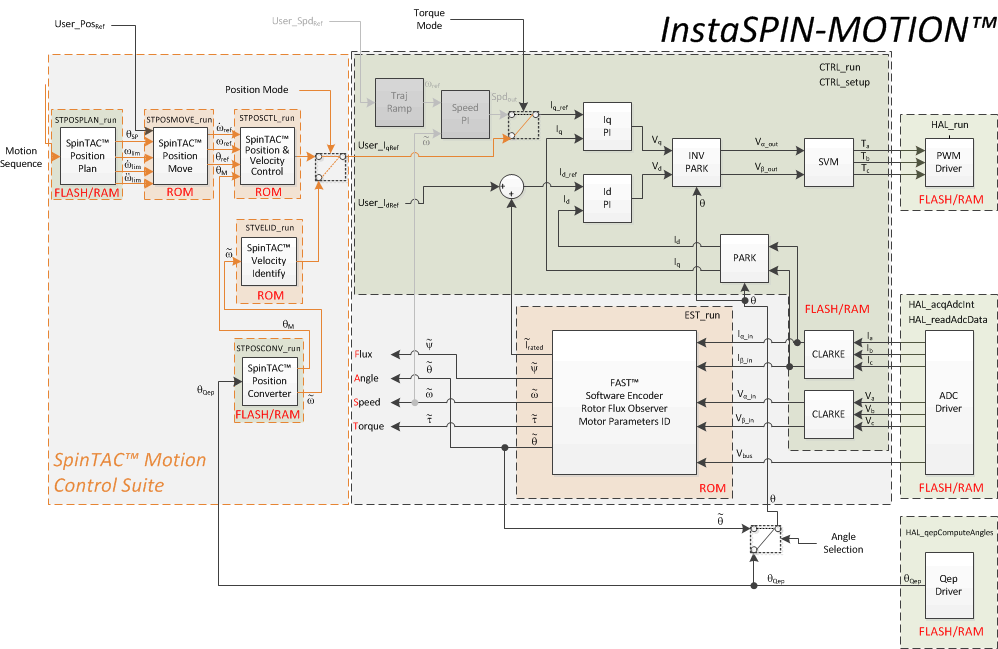SPRUHW1A June 2014 – October 2021 TMS320F28052-Q1 , TMS320F28052M , TMS320F28052M-Q1 , TMS320F28054-Q1 , TMS320F28054M , TMS320F28054M-Q1
- 1Read This First
- 1 F2805xM InstaSPIN-MOTION Enabled MCUs
- 2InstaSPIN-MOTION Key Capabilities and Benefits
- 3InstaSPIN-MOTION Block Diagrams
- 4Application Examples
- 5Evaluating InstaSPIN-MOTION Performance
- 6Microcontroller Resources
Scenario 3: InstaSPIN-MOTION Position Control with Mechanical Sensor and Redundant FAST Software Sensor
There are many applications where precise position control is required. For these applications, it is difficult to balance the many tuning parameters that are required. InstaSPIN-MOTION features accurate position, speed, and torque control with combined position and speed single-variable tuning (see Figure 4-4). This simplifies the tuning challenge and allows you to focus on your application and not on tuning your motor. Position applications require a mechanical sensor in order to precisely identify the motor angle at zero and very low speeds. The FAST Software Encoder may provide redundancy in position control applications; this can be used as a safety feature in case the mechanical encoder fails.
 Figure 3-4 InstaSPIN-MOTION Position Control with Mechanical Sensor and Redundant FAST
Software Sensor
Figure 3-4 InstaSPIN-MOTION Position Control with Mechanical Sensor and Redundant FAST
Software Sensor